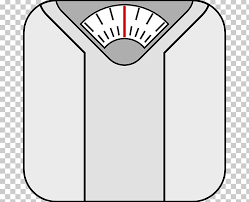

It’s on their end: https://lemmy.world/post/758291
And https://lemmy.world/post/15786 talks about it tersely under “Other Issues.” See also https://lemmy.world/post/744421.


It’s on their end: https://lemmy.world/post/758291
And https://lemmy.world/post/15786 talks about it tersely under “Other Issues.” See also https://lemmy.world/post/744421.


I did some markup that I think explains Intermittent Fasting (IF) in a simple way. Critiques are welcome.
Intermittent Fasting (IF). IF works by setting an 8 hour window, during which you eat normally and outside of which you do not eat yet. When you do eat in that window, you do not add any food – don’t jam 12 or 16 hours worth of food into an 8 hour window.
Both Calorie Counting and Intermittent Fasting work well for weight loss, as long as in counting you are 100% complete and your accuracy is reasonable; and, in IF, you only eat 8 hours worth of food during your 8 hour window and do not add any. Both are permissive and flexible (if you eat more on Friday night because of a social occasion, you can flex that by eating lighter earlier or later). Don’t eat the same thing every day, but vary your meals.
One key thing seems to be support. Get and give support with others here so that you learn and improve and don’t bear your burdens alone. Weight-loss and fighting temptation can be a lonely business, and nutrition can feel too complex to ever understand, but we have a good group here and together we generally point in the right direction.


Wtf. US at it’s peak. At my first job, when I was 14 y/o, I made more than that (€2.72) doing restocking at a supermarket.
Supermarket stockers are not tipped so a higher minimum wage applies, which is $7.25 right now. However, laborers are also in high demand so most places pay more than the minimum.


So will AITA if I don’t tip?
Yes
Is it really my personal responsibility to make sure my server is paid enough?
Because of the circumstances, taxes, and customs, yes – in this case – the responsibility has been pushed onto you.
You’re right that it is ridiculous and unfair, but it is also currently the way it is. By not following the custom, the one being most hurt is the one least able to do anything about it. You also have to walk around afterward thinking that you maybe did not do the best thing.
It seems there’s a lot of discussion about getting rid of tipping, but I don’t know how much has changed in this regard.
Some experiments have been tried, and in some places a ‘service charge’ appears in lieu of tipping (you need not tip in these places).
Also, recently, counter service has put out tip jars and credit-card screen prompts for before-service tipping. You need not do it at all there. However, if a server has served you beyond the counter, tipping after the service is customary.
To tip 20%, take the subtotal (before the taxes), and move the decimal point one to the left. $28.00 becomes 2.800 (10%) then double that result, $5.60 (20%) is a good full-service tip on a $28.00 bill. More is welcome but never expected or required. Tipping down to 15% is fine, too, don’t try to make it an exact science. Tipping outside of 15-20% – after the service – is usually done to send a message although studies have not shown that servers really care about those messages too much.
Because of this dastardly system, not tipping is particularly bad because tipping is most of their income. By not tipping, they are working essentially for nearly free in most U.S. states (a very low hourly rate, well below poverty wages).
And finally, if you don’t know, honestly and politely ask them or a manager. “I’m not from the USA. Can you tell me how much I am expected to tip in this situation?” Servers may be a little generous with their answer, but most people are honest and happy to know that you will not stiff them for their tip.


I read about the 5:2 and it seems quite doable and reasonable.
We learn from each attempt and the last one informs the future ones. I’m coming up on my 9th anniversary of my first log entry, July 9th 2014. Its on July 9th every year that I decide my strategy for the coming year. Counting is dead simple and second-nature now, but I remember and know it’s hard to start.


There’s an interesting side-note that may turn out to be a main point. Dr. Adam Glidden wrote Time-Restricted Eating for Treatment of Obesity? The Devil Is in the (Counseling) Details but the article is paywalled. Just going on the title, and what was said in the NPR article, clearly this was not just a minor good-to-know.
I got a lot of my support from visiting forums like this one nearly daily. I also am a member of a Take Off Pounds Sensibly (TOPS) chapter that meets in person weekly for accountability, education, and group peer-support. Sometimes these forums and TOPS can be a little corny and social, but it gets the job done.
It’s one of those things where we get out of it what we put into it. Participate and it won’t feel so lonely, teach and you will learn, explain and you will understand better. But the side-note or other main-point of this study – in this study – is that getting support in your journey counts.


I just got approved and it was fast and easy. Some instances take days. This was seriously no problem. Thank you
I cross-posted this from another instance because it’s a good story, but also read a separate but related story here: https://www.washingtonpost.com/wellness/2023/06/27/ultra-processed-foods-predigested-health-risks/
The predigested angle is new to me, but explains a few things. Kevin Hall mentioned in the article does great research on weight and nutrition at NIH.